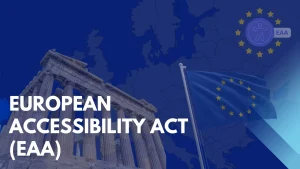Legal texts consist of various complex and technical terms having specific meanings associated with them, therefore, allowing no errors to be made, unlike everyday documents. An accurate legal translation can either make or break a case whether it is a contract, court ruling, or any other legal document. This is why legal translations require more than just fluency in a language—they demand subject matter expertise.
In this blog, we will be exploring why legal experts are required for legal translations who possess the expertise in not only the language but also in-depth knowledge of the subject matter therefore, ensuring accuracy and leaving no room for errors.
The Complexity of Legal Terminology
Specialized terminology is one of the main aspects when we talk about legal translation. A translator who is incapable and does not possess legal expertise may be unable to convey the actual content intended accurately in the target language required.
On the other hand, if the translators possess expertise in the subject matter, they will manage the challenging terms with ease while maintaining the accuracy of the translation both linguistically and legally.
Understanding Legal Systems
As discussed in our previous blog: Best Practices for Translating Legal Documents Across Multiple Jurisdictions, every country has its own legal system in accordance with its culture. Therefore, it becomes necessary for translators to ensure they stay updated and fill in their knowledge deficit with respect to not just the languages involved but also the legal systems that are involved.
Therefore, translators who possess the subject matter expertise in legal translation do not have the knowledge deficit with these differences and hence, are able to adapt to the translation accordingly. They ensure that the concept of legal equivalence is maintained and that literal translation is not the best approach for legal translations. This allows them to provide legally enforceable translations that are valid and can hold up legally in the jurisdictions involved.
Cultural and Legal Nuances
Legal systems in different countries as discussed above are deeply rooted in the culture of that particular country. This means that similar terms in a legal context may mean one thing in one country while it may mean something else in the other country’s culture. Therefore, legal translators must have sound knowledge of the cultures to be able to cater to these cultural differences to ensure that the intent behind the original document is conveyed accordingly.
Translators with expertise in the subject matter are professionals and trained concerning these cultural and legal differences. They ensure that the documents are, therefore, translated correctly in both the legal and cultural framework.
Maintaining Confidentiality and Security
As we all know, most legal documents contain sensitive and confidential information that has to be protected. Inexperienced translators may not possess the full understanding of the importance of maintaining confidentiality and protecting the information involved.
On the other hand, translators who are experienced when it comes to the subject matter, are trained to handle sensitive information efficiently ensuring ethical practice is carried out and protocols are followed with respect to maintaining the confidentiality of the documents.
Avoiding Literal Translations
Literal translations in legal translations can cause more problems than you think. General translations may utilize the approach of literal translations as they might work for those but when it comes to legal translations, a different approach is required to ensure the original intent is conveyed appropriately. Due to the differences in cultures and how similar legal terms are interpreted differently in each country, it is important for the translations to be in the correct context to secure legal implementation.
For this reason, translators having the subject matter expertise make certain to keep their focus on and achieve legal equivalence. This allows the translation to be legally correct ensuring what was intended is conveyed accordingly while maintaining linguistic proficiency.
Why Subject Matter Expertise Matters in Legal Translation
Legal translations are not only about having knowledge of the source and target languages but also acquiring an in-depth knowledge of the legal frameworks involved. Subject matter expertise, therefore, plays a crucial role in translators being equipped with the necessary requirements to set the seal for culturally accurate and legally sound translations.
At TransLinguist, we understand the role that subject matter expertise plays concerning legal translations. Our team of certified, trained, and expert legal translators ensures that your translations are accurate and reliable with the legal standards of the countries involved.
No need to take any risks with your legal translations—contact us today to learn more about how we can help you with legal translations.



